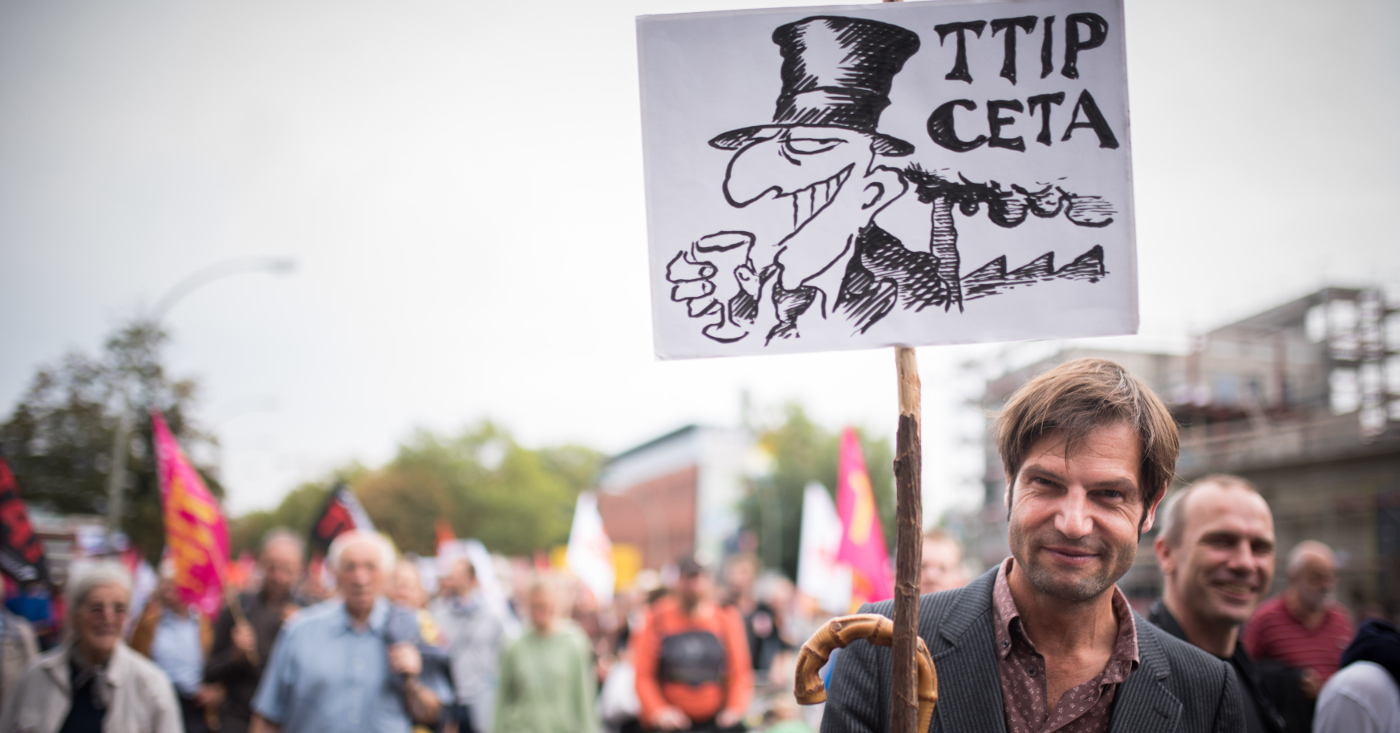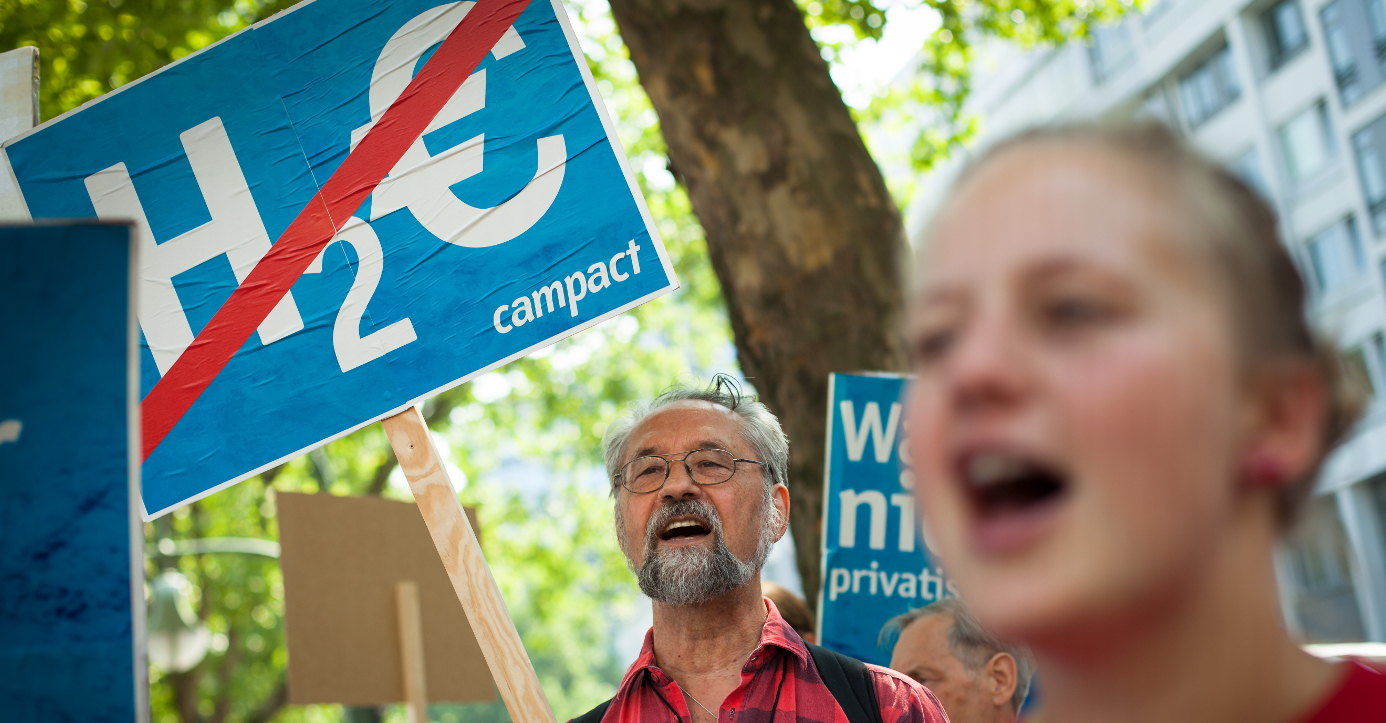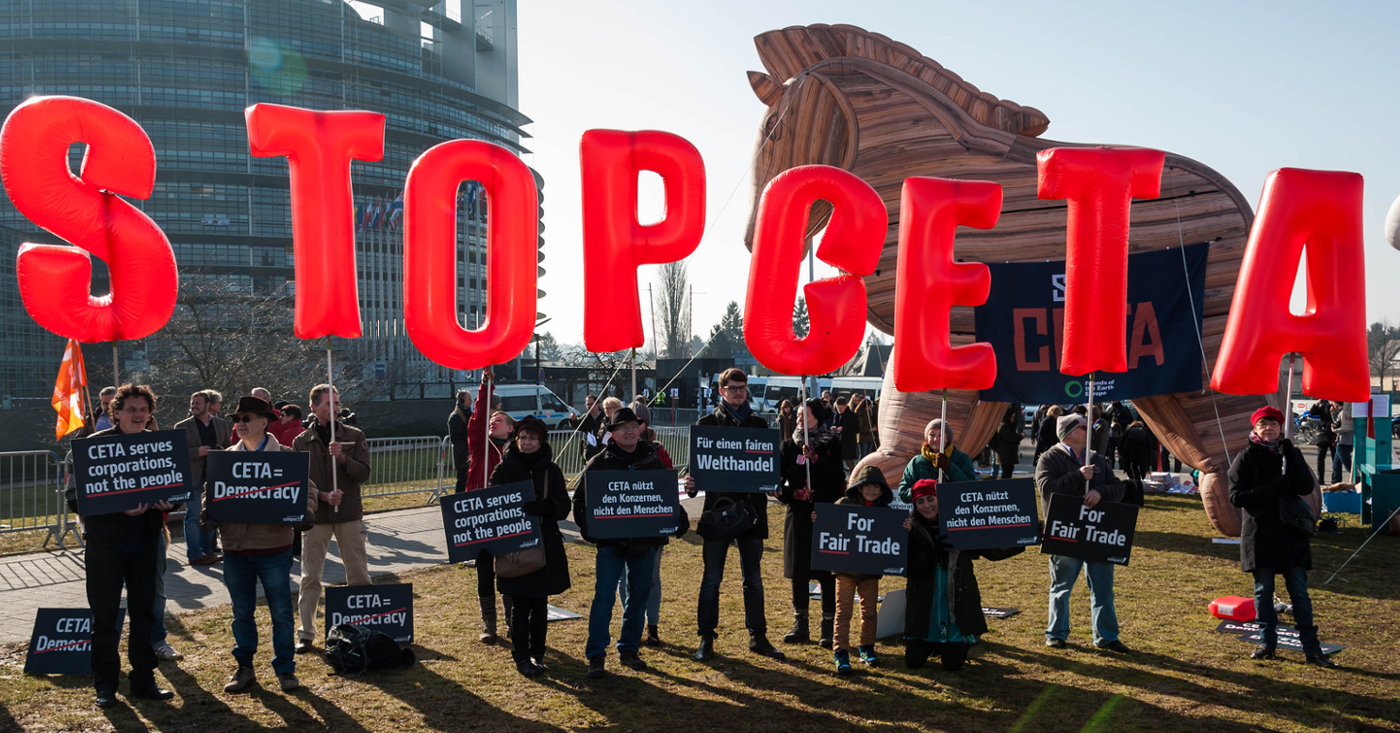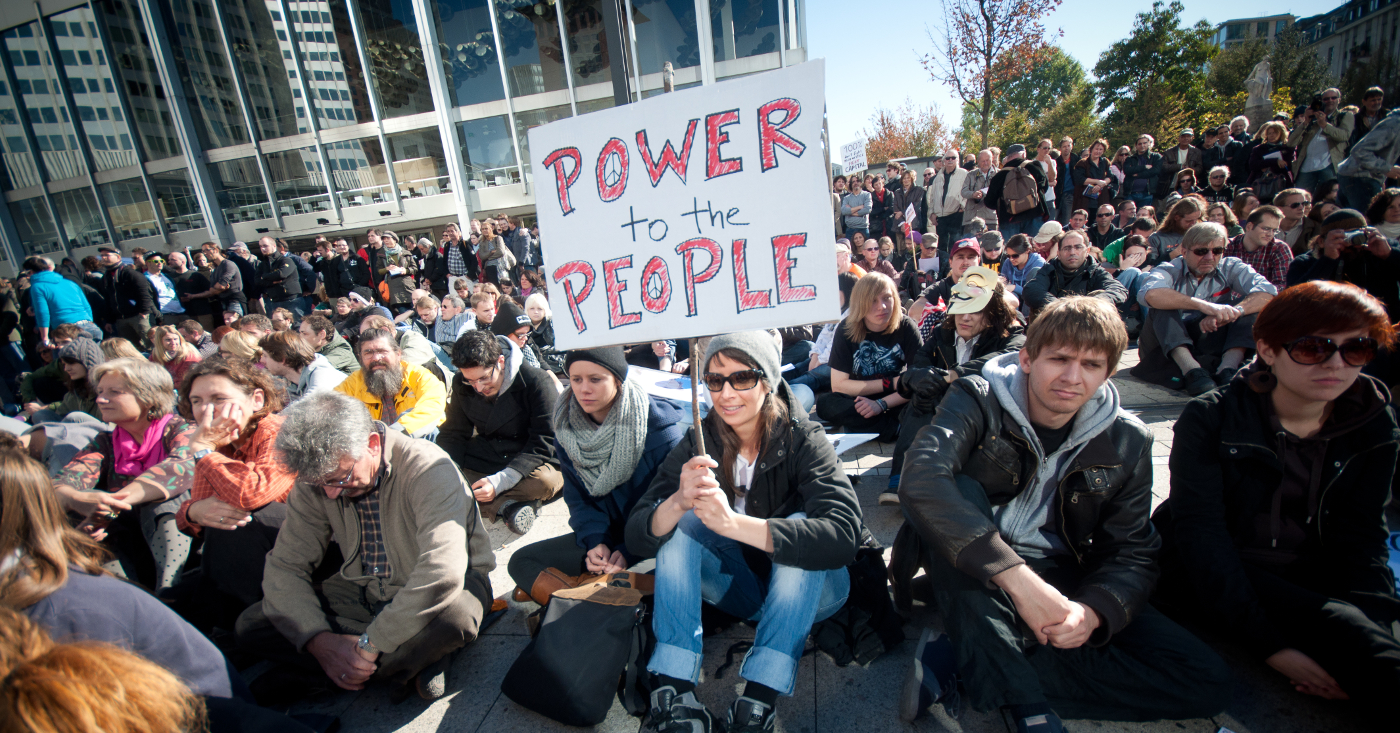Demand No. 1: Trade policy should not restrict high standards and consumer protection

Trade agreements may not breakdown environmental and social standards. On the contrary: Campact demands a competition for the best standards. The precautionary principle protects the consumers and the environment in the EU: Therefore, trade agreements and the World Trade Organisation must make this a rule. An agreement may be signed only when labour rights and the international environmental standards are followed. The sustainability chapters, which define environmental and social objectives, are currently very weak. These should be binding and enforceable.
Demand No. 2: Trade policy must contribute towards sustainable agriculture

The current trade policy contributes towards an unhealthy development: a stronger concentration of agricultural production and more and more industrialised agriculture. The countries of the „global north“ must turn away from the lump-sum subsidies for agriculture. Predominantly large businesses are benefiting from this. Instead, we want to reward the services of the farmers, who give returns to the society. This includes the maintenance of landscape and biological diversity. The trade agreement itself may not weaken the rules e.g. regarding the use of chemicals or hormones.
Demand No. 3: Trade and investment agreements may not contain any special complaint rights for investors

Agreements must manage without special complaint rights for investors. Existing agreements must be terminated or re-negotiated accordingly. Investors can sue governments because of a decision on nuclear phase-out or a moratorium for fracking. This jeopardises democracy and the implementation of social objectives. The reform proposal of the EU Commission for a multilateral investment court does not improve this. On the contrary: The proposal aims at establishing a special complaint mechanism permanently and makes any substantial reform more difficult.
Demand No. 4: Trade policy may not come in the way of regulation of financial markets and must fight against tax loopholes

Trade agreements must contain arrangements for tax cooperation in order to fight against tax evasion. In order to stop the race to the bottom, a minimum tax rate for companies would be a necessary condition before signing a trade agreement. Moreover, the trade partners should also agree upon minimum standards for the fight against money laundering. Trade agreements may not hamper the regulation of financial markets.
Demand No. 5: Trade policy must contribute towards protecting human rights along the entire supply chain

Large companies must be obliged to protect human rights along the entire supply chain. Persons affected by human rights violations must find it easier to file a legal complaint – this is currently very difficult in a lot of cases. A legally binding UN treaty can help here, which sets up the rules for punishing human rights violations by transnational companies. Trade agreements also need binding action plans. The aim: Improving the condition of human rights in the partner country.
Demand No. 6: Trade policy must make an active contribution towards achieving the UN climate objectives

The imminent climate catastrophe requires a different trade policy. Trade agreements may not hinder the expansion of renewable energies. They must make it more difficult to trade climate-damaging products. Therefore, one pre-condition for signing trade agreements should be: Setting ambitious CO2 targets and abolishing the subsidies for fossil fuels.
Demand No. 7: Trade policy may not hamper basic public services

Public services like water supply and waste disposal are important for all of us. Trade agreements may not hamper the quality and the prices for these by promoting privatisation. They may not flatly liberalise all the services (“negative lists”). Instead, the trade partners must consider exactly which services they should include in the trade agreement. As a rule, public services must be excluded.
Demand No. 8: Trade policy must be fair

Trade agreements may not restrict the policy space of developing countries. Medicines or seeds are vital for survival, especially for the poorest. The access to these may not be restricted through rigid intellectual property rights. Negotiations about further steps in trade policy should be done in a reformed World Trade Organisation. So that every one sits at one table.
Demand No. 9: Trade policy must be organised as more democratic and transparent

The European Parliament must decide about the negotiation mandate: about the decision to start new negotiations and about the objectives, which an agreement follows. The civil society and the national parliaments must publicly discuss the mandate. The effects of the agreement must be reviewed regularly, before signing as also after coming into force. In this way, adjustments can be made in case of negative developments. The negotiations must be conducted in a transparent way. This includes the publication of all negotiation documents.
Demand No.10: A fundamental change is necessary

All our suggestions are geared towards: Governments must be able to set the market rules. Trade agreements should not be allowed to further restrict their policy space. Trade and investment policies must help in achieving social, environmental and human rights objectives. The benefits of globalisation must be distributed more evenly e.g. through a progressive taxation policy and fair wages.